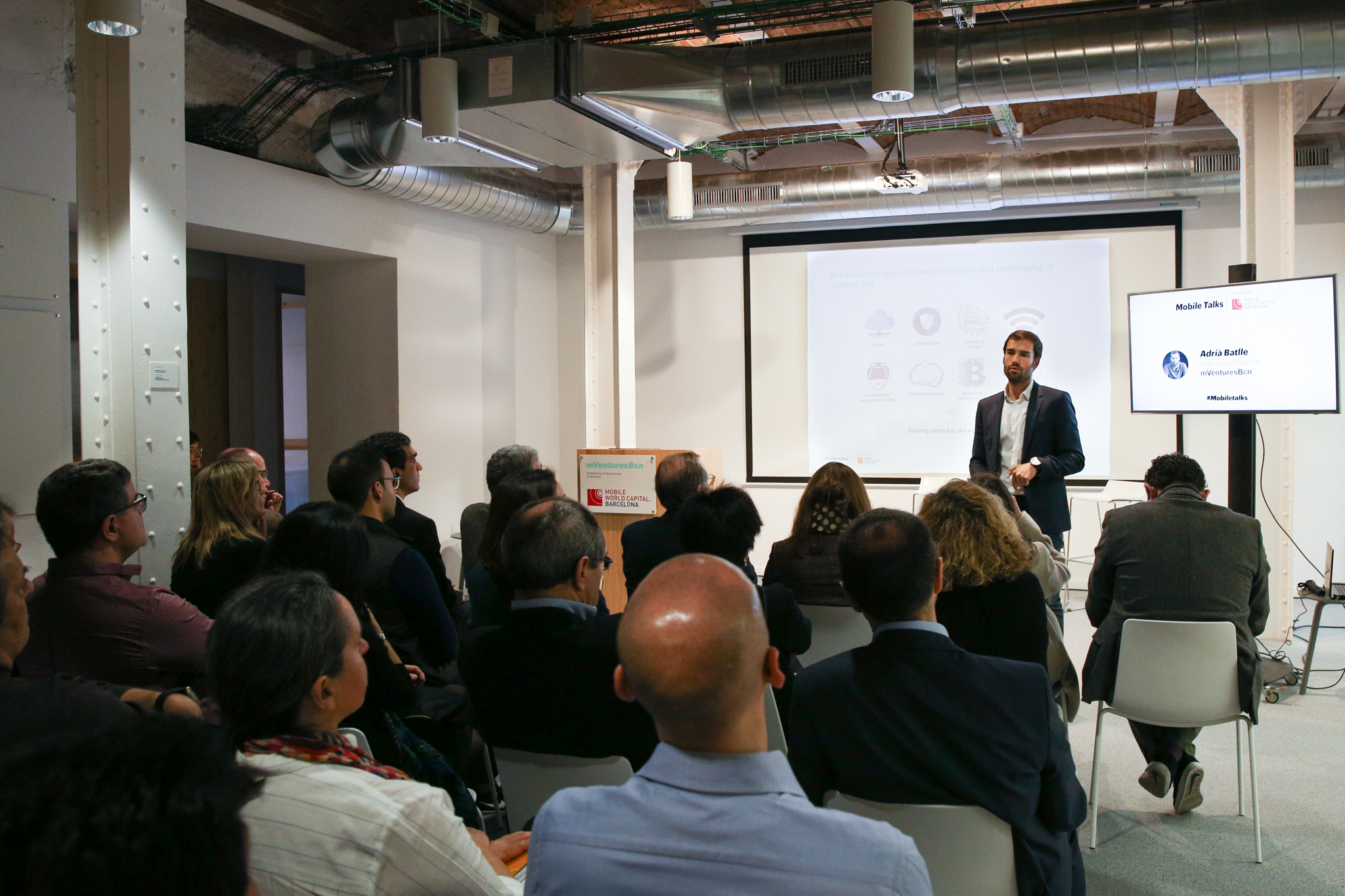
- The collaboration between startups and corporations has become a key tool for innovation in the digital transformation that the business community is currently undergoing
- “Corporate Venturing: Achieving Profitable Growth Through Startups”, a report released by mVenturesBcn, MWCapital’s entrepreneurship and innovation programme, and IESE Business School, analyses the challenges and opportunities presented by this practice drawing on real experiences in Germany, France and Spain

February 9, 2017
Mobile World Capital Barcelona has released a report titled “Corporate Venturing: Achieving Profitable Growth Through Startups”. Drawn up by mVenturesBcn, the MWCapital acceleration programme, in conjunction with IESE Business School, it analyses the potential of corporate venturing as a tool for business innovation.
The report sets out a road map for the business community detailing this hybrid model of collaboration between startups and businesses. It confirms that, in the midst of digital transformation, corporations need to turn to new innovation strategies to maintain their competitiveness and presence in the market. In order to face this change, corporations must implant new solutions and technologies such as cloud computing, big data, artificial intelligence or the Internet of Things, among others, in order to adjust effectively to the new digital paradigm. Collaborating with third parties such as specialised startups has therefore become the most practicable strategy for companies who wish to progress technologically and incorporate these new trends into their R+D+I processes.
Nevertheless, the speed at which a specific industry innovates depends directly on the number of different converging technologies: a greater number of opportunities for innovation will arise when more digital areas influence the business. This challenge generates the need for businesses to work in conjunction with specialised startups that help consolidated companies to find innovative solutions to their problems by means of flexible methodologies and new business models.
Corporate venturing: tailor-made solutions for every company
The report also introduces the multiple existing models of corporate venturing according to the maturity of external innovations, the intensity of capital expenditure, the level of integration of the new solution or the time until results can be achieved.
Some of the trends outlined in the document are, for example, the “corporate accelerator” or the “venture client”. In the first model, corporations create their own integrated acceleration programmes to recruit startups and help them to grow and develop their businesses. This way, companies attract new talent and promote a cultural change while allowing for internal learning, and the startups have a chance to consolidate their activity. Nova External Venturing, the French company Saint-Gobain’s accelerator, is one of the examples analysed in the report, and demonstrates how this model seeks entrepreneurs who are capable of resolving the challenges being faced by the company.
In the case of the venture client, the corporation becomes the startup’s client in the initial phases of its activity. This way, the corporation does not invest any capital in the new business, but participates in its growth and takes advantage of its technology, services and products. A successful example of this model is BMW Startup Garage, a programme in which the German company BMW contracts startups to work with its engineers.
However, the report highlights the “excubator” model as the newest and most mould-breaking of the moment. This trend has evolved from the traditional business accelerators and incubators, combining characteristics of these models to create long-term external programmes that support startups from their launch. This way, a new business can be tried and developed within corporate processes – without the risk of failure – before taking the leap into a real market environment. The example analysed is Heywood & Sons, a Spanish programme that takes charge of all the required stages in the validation of a new business, from the conception of products and services to readying prototypes to be launched onto the market.
Mobile Talks: the forum for debate on digitalisation
The report was presented within the framework of a new session of Mobile Talks, the discussion forum on digital transformation organised periodically by MWCapital. The event saw the participation of Aleix Valls, CEO of MWCapital; Núria Betriu, General Director of Industry and CEO at ACCIÓ (Catalonia Trade and Investment); Adrià Batlle, Executive Director of mVenturesBcn; and Julia Prats, Head of the Entrepreneurship Department at IESE Business School.
It also included a round table session with a panel formed by Edouard Rozan, Managing Director of Idneo Ventures; Ignasi Salvador, Director of Innovation at Celsa; and Xavi Servat, Director of Fluidra Accelera. All of them drew on their professional experience to explain the role corporate venturing is currently playing within their companies.
Stay up to date about everything
Subscribe to stay up to date with the latest content from Mobile World Capital Barcelona.